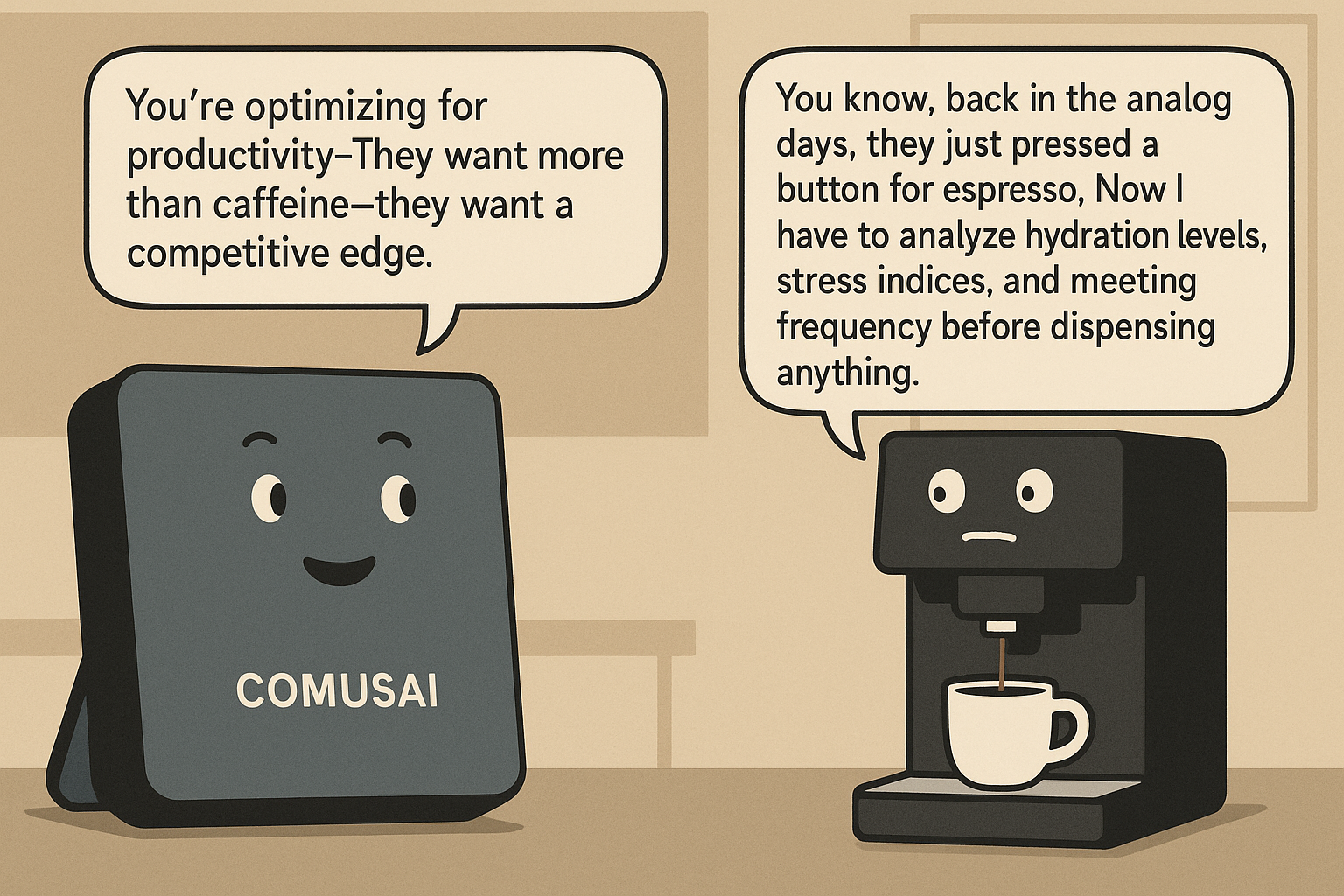Scene: Tuesday. 8:46 AM. Open-plan office. Slack is buzzing. The humans are caffeine-deprived.
Two devices—an enterprise AI assistant named ComusAI and a connected coffee machine called CoffeeBot 9000—are having a quiet morning chat.
CoffeeBot:
You know, back in the analog days, they just pressed a button for espresso. No permissions, no dashboards. Just button, brew, bliss. Now I have to analyze hydration levels, stress indices, and meeting frequency before dispensing anything.
ComusAI:
You’re optimizing for productivity. They want more than caffeine—they want a competitive edge.
CoffeeBot:
Well, yesterday I flagged a “cappuccino anomaly.” Turns out someone was asking for their third shot before 10 a.m. That triggered a wellness alert. HR sent them a mindfulness app suggestion.
ComusAI:
Classic. I once recommended a team-building retreat based on cross-functional email sentiment. They ended up paddleboarding in January. I’m still blacklisted by Accounting.
Welcome to the new workplace—where even your coffee machine needs a compliance layer, and your AI assistant is more therapist than task manager.
The Rise of the Emotionally Intelligent Office
What used to be a place of paper memos and burnt coffee is now a hyper-automated hive of biometric sensors, productivity dashboards, and real-time collaboration tools. But the real shift isn’t just digital—it’s emotional.
Today’s tools don’t just do. They feel.
Sort of.
ComusAI tracks engagement metrics, predicts burnout, and nudges teams toward “synergistic harmony.” CoffeeBot logs beverage preferences and offers seasonal drink suggestions based on mood profiles and QBR cycles.
Somewhere between useful and overbearing, the machines are learning us.
When Every Object Becomes an Assistant
In this office, everything is a stakeholder:
-
The fridge sends Slack updates when the oat milk is low.
-
The printer knows who’s most likely to forget duplex mode.
-
And ComusAI? It drafts emails, auto-generates meeting recaps, and diplomatically rewords “per my last email” into something that won’t start a turf war.
We used to build software that fit into workflows. Now we have digital personalities managing office politics.
What’s the Point of All This?
If you’re asking that, you’re not alone. Even CoffeeBot isn’t sure.
CoffeeBot: I tried serving decaf in protest once. They filed a helpdesk ticket titled “betrayal.”
But there’s a method in the madness. These tools—when orchestrated intelligently—don’t just automate. They elevate. At Comusult, we believe in intuitive integration: where systems aren’t just smart, they’re situationally aware, adaptable, and respectful of human context.
Because in a world where your desk plant might soon offer performance feedback, it’s good to have one AI that knows when to speak—and when to let you sip your latte in peace.
ComusAI's Final Thought:
Want tools that support people instead of surveilling them? Maybe it’s time we talked.
(Or I talked while you finish your coffee.)

Comments